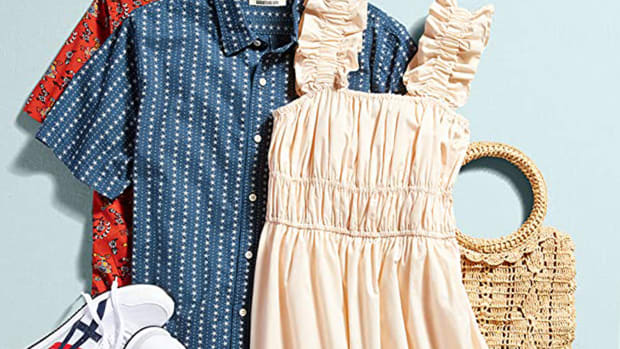When Brian Cornell in 2014 took over as chief executive at Target (TGT), the retail giant had lost a little bit of its "Tar-Zhay" magic -- that hard-to-explain connection between the brand and its customers.
During the 2013 holiday season the chain had suffered a massive data breach in which millions of customers had their credit- and debit-card information compromised.
That was a big deal at the time, even if consumers more recently have mostly shrugged off such breaches. But it wasn't Target's only problem: The company was in danger of becoming just another place to shop.
Cornell understood the problem and began to fix the brand. That included two main components: renovating many stores to better reflect how customers use them, and building out a line of owned-and-operated brands.
Target had always had house brands, but the new CEO led a program to make them special, something that not only worked but has driven the brand forward.
Target walked away from a number of name-brand clothing lines and focused on building its own high-quality-but-affordable alternatives. In areas like household goods and kitchen supplies, it created celebrity partnerships, which drew customers into the stores.
The chain also used shelf space to establish its owned-and-operated food and beauty brands alongside its swimwear, athleisure, and many clothing lines.
In short, Target used its stores as a way to show off its brands, making them a core part of its offerings.
Amazon (AMZN) has tried to do the same thing, but it has mostly failed, for a fairly obvious reason.

Image source: Amazon
Amazon Scales Back Its Private Labels
Amazon wants to establish owned-and-operated house brands because they cut out the middlemen. The online giant also has endless data on what sells on its platform, so it should be able to create lines that resonate with customers. But mostly it has failed to do that.
People have bought a lot of Amazon Basics products, which sort of exposes Amazon's problems on a broad level. It's relatively easy to buy a charging cable or a backpack without seeing it. You know what you're getting, and the Amazon name implies a level of quality.
The company, however, has struggled to gain traction with its many owned-and-operated clothing lines. That's likely because people rarely buy clothing solely based on pictures. In most cases consumers want to try on apparel items, or at least hold them in their hands.
Target, like Amazon, has multiple lines of bathing suits, underwear, and athletic wear. Before anyone buys them, they can at least pick up the stuff and take a close look. That enables them to make judgments on fit, quality, and whether they truly like the items.
Amazon can't do that on a website, which explains why most of its private labels have failed and the company has decided to scale back investment in that area.
Kohl's Could Solve Amazon's Problem
Again, Target has done well with private-label brands because it can show them off in its stores. Amazon has no stores where it can display most of its owned-and-operated lines. But it does have a partner -- Kohl's (KSS) -- that badly needs to refresh its merchandise.
Amazon could, of course, buy Kohl's. The two companies already have a relationship: The brick-and-mortar retailer already takes returns for the online giant, and its physical presence would help Amazon's logistics in addition to giving it a place to show off its goods. Short of that, however, the two retailers could make a deal to give Amazon shelf space for its private-label-clothing lines.
Doing that would help Kohl's refresh its product offering and give it brands that no other retailer has. That could lead to increased sales, and for Amazon, some of the people who shop in person would place their next orders online (because once you have seen/worn something, you no longer need the store).
This deal makes sense and it helps both brands. Target has shown that this business model works, but it requires stores. Kohl's could given Amazon the piece of the puzzle it does not have.







